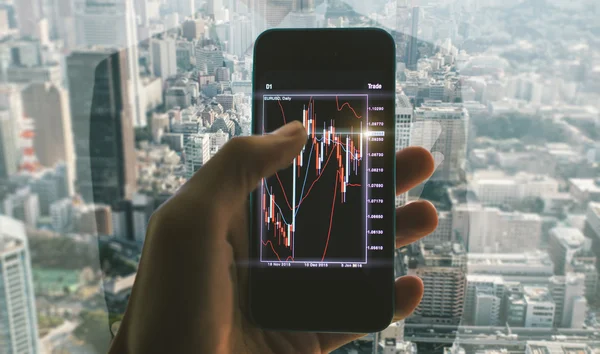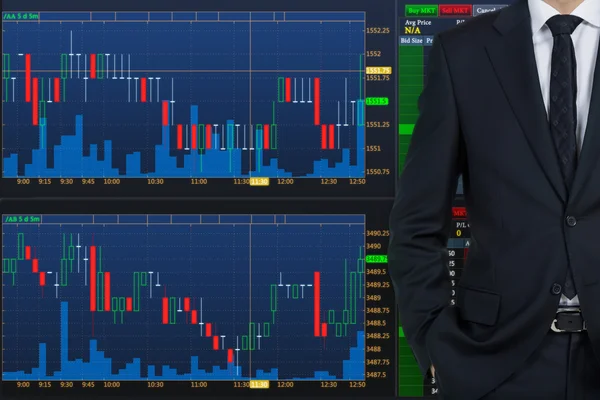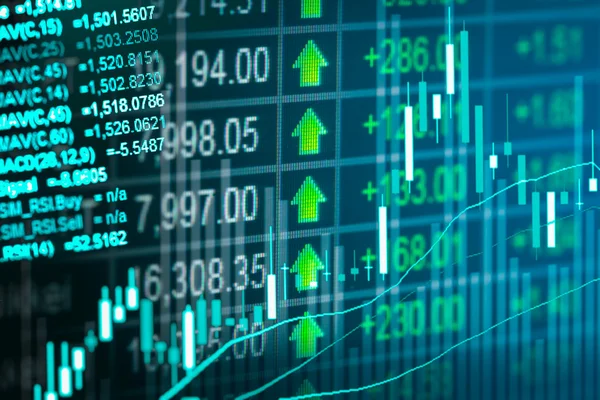
Understanding Iran's Foreign Exchange Market

Iran's foreign exchange market, commonly referred to as the “Iran Forex,” plays a pivotal role in the country's economic landscape. It is a complex, multifaceted system that facilitates the buying and selling of foreign currencies, which is crucial for trade, investment, and economic stability. Despite being a significant player in the Middle East, Iran's forex market operates under unique circumstances shaped by geopolitical tensions and economic policies.
The Iranian Rial (IRR) is Iran's official currency, and its value is influenced by a myriad of factors including global oil prices, internal economic policies, and international relations. Unlike more open economies, Iran employs a managed exchange rate system that attempts to stabilize the Rial amid external pressures. This system involves multiple exchange rates including an official rate set by the Central Bank of Iran (CBI) and a market-driven rate that can significantly differ due to supply and demand dynamics.
Currency trading in Iran is primarily conducted through exchange houses, banks, and the National Exchange House, which is overseen by the CBI. The currency market's structure is fragmented due to the interplay of official and unofficial rates, making it challenging for businesses and investors to navigate. This dual-rate system has led to a parallel market where the Rial often trades at a discount compared to the official rate.
The demand for foreign currency in Iran is largely driven by imports, foreign debt obligations, and the need to hedge against inflation. However, stringent regulations and international sanctions have constrained the availability of foreign exchange, causing fluctuations and speculation in the market. As a result, Iranian businesses often face difficulties in accessing hard currency for their international transactions.
The forex market's volatility is further exacerbated by the country's economic policies, which are sometimes reactive to external pressures. For instance, in attempts to curb inflation and stabilize the Rial, the Iranian government might impose restrictions on currency exchanges or adjust import tariffs, leading to market unpredictability. Understanding these dynamics is crucial for stakeholders who want to engage with Iran's economy.
In recent years, technological advancements and increased internet penetration have gradually modernized the forex landscape in Iran. Online trading platforms and increased access to financial information have empowered more Iranians to participate in currency trading, albeit with caution due to regulatory uncertainties and market risks.
Key Players in Iran's Forex Landscape

The Central Bank of Iran (CBI) stands as the primary regulator and influencer in Iran's forex market. Its policies and decisions significantly impact the supply and demand for foreign exchange, determining the official exchange rates and managing the country's foreign reserves. The CBI also oversees the country's financial institutions to ensure compliance with forex regulations.
Exchange houses, both licensed and unlicensed, are vital conduits for currency trading in Iran. These entities facilitate transactions that range from small personal exchanges to large corporate deals. The licensed exchange houses operate under strict guidelines from the CBI, which imposes controls on the amount of foreign currency that can be traded or transferred abroad. Unlicensed exchange houses, although illegal, often cater to the demand for foreign currency that cannot be met by the regulated market.
Commercial banks in Iran are also important players in the forex market. They provide currency exchange services to individuals and businesses, and some have established correspondent relationships with foreign banks to facilitate international trade. However, due to sanctions, many Iranian banks are excluded from the global financial system, limiting their ability to engage in international currency transactions.
The government of Iran, through its various ministries and agencies, exerts considerable influence over the forex market. Policies related to trade, taxation, and investment can affect currency flows and impact exchange rates. Additionally, the government's handling of its foreign exchange reserves and gold holdings plays a crucial role in maintaining market stability.
Iranian importers and exporters are key stakeholders in the forex market, as their need for foreign currency to conduct international trade drives demand. Importers require access to foreign exchange to pay for goods and services from abroad, while exporters bring foreign currency into the country, influencing the supply side of the market.
In recent years, the rise of fintech companies and online trading platforms has introduced new players into the forex landscape. These entities offer innovative solutions for currency trading, often targeting younger and tech-savvy individuals. However, they must navigate the complex regulatory environment and ensure compliance with Iranian laws to operate successfully.
Impact of Sanctions on Iran's Currency Trading

International sanctions have had a profound impact on Iran's currency trading, creating significant challenges for the country's forex market. These sanctions, primarily imposed by the United States and its allies, restrict Iran's access to the global financial system, limiting its ability to engage in international trade and finance.
One of the most significant effects of sanctions is the restriction on Iran's oil exports, a major source of foreign currency for the country. With reduced oil revenues, the government has less foreign exchange at its disposal to support the value of the Rial, leading to currency depreciation and increased volatility in the forex market.
Sanctions have also led to the exclusion of Iranian banks from the SWIFT international payment system, complicating cross-border transactions. This has forced Iranian businesses to rely on informal networks and barter trade to conduct international transactions, further destabilizing the forex market.
In response to sanctions, Iran has sought to strengthen its economic ties with non-western countries, engaging in currency swap agreements and bilateral trade arrangements that bypass the U.S. dollar. While these efforts have provided some relief, they have not fully compensated for the loss of access to the global financial system.
The sanctions-induced shortage of foreign exchange has fueled a parallel market for currency trading in Iran. The disparity between the official and market rates has widened, leading to speculative activities and making it difficult for businesses to plan their financial operations effectively.
Despite these challenges, Iran has managed to adapt to the sanctions over time. The government has implemented measures to prioritize foreign exchange allocation for essential imports and encouraged the use of local currency in trade with neighboring countries. However, the long-term impact of sanctions continues to pose significant risks to Iran's forex market and its overall economy.
Regulatory Framework Governing Forex in Iran

The regulatory framework governing forex in Iran is complex, shaped by a combination of government policies, central bank directives, and international constraints. The Central Bank of Iran (CBI) is the primary regulatory authority responsible for overseeing foreign exchange transactions and ensuring market stability.
Iran's forex regulations are designed to control the flow of foreign currency in and out of the country, maintain the value of the Rial, and curb inflation. The CBI sets the official exchange rates and manages foreign reserves, while also regulating the activities of exchange houses and financial institutions involved in currency trading.
A key component of Iran's forex regulation is the multiple exchange rate system, which distinguishes between official rates for government transactions and market rates for private sector dealings. This system is intended to shield the economy from external shocks and manage the allocation of foreign exchange for essential imports.
To combat illegal forex activities, the Iranian government has implemented strict licensing requirements for exchange houses and imposed limits on the amount of foreign currency individuals can hold or transfer abroad. Violations of these regulations can result in severe penalties, including fines and imprisonment.
In recent years, Iran has made efforts to reform its forex regulations to make the market more transparent and efficient. This includes increasing the number of licensed exchange houses, promoting electronic trading platforms, and enhancing the reporting and monitoring of foreign exchange transactions.
Despite these efforts, the regulatory environment remains challenging due to external pressures and the need for economic stability. The Iranian government continues to balance the demands of a managed exchange rate system with the need to foster a more open and competitive forex market.
Challenges Facing Iran's Forex Market

Iran's forex market faces a myriad of challenges, many of which are rooted in the country's geopolitical situation and economic policies. The most pressing of these challenges is the impact of international sanctions, which have restricted Iran's access to foreign currency and limited its engagement with the global financial system.
The dual exchange rate system, while designed to stabilize the economy, has also created inefficiencies and opportunities for arbitrage. The gap between the official and market rates has led to a parallel market where speculative activities can thrive, making it difficult for businesses to plan and execute their financial strategies effectively.
Currency volatility is another major challenge, fueled by factors such as fluctuating oil prices, inflation, and political uncertainties. This volatility complicates long-term economic planning and increases the risk for businesses engaged in international trade and investment.
Regulatory constraints and bureaucratic hurdles further impede the efficiency of Iran's forex market. The stringent controls on currency exchanges and the limitations on foreign currency holdings can deter foreign investment and hinder the development of a more dynamic financial sector.
Moreover, the exclusion of Iranian banks from the international payment system has forced the country to rely on informal networks and barter trade, which are less efficient and more prone to risk. This situation limits the effectiveness of monetary policy and restricts Iran's ability to respond to external economic shocks.
Lastly, the lack of technological infrastructure and financial literacy among the population poses an ongoing challenge. While online trading platforms and fintech solutions are emerging, they require significant investment and regulatory support to reach their full potential and contribute to the modernization of Iran's forex market.
Future Prospects for Forex Trading in Iran

The future prospects for forex trading in Iran are closely tied to the country's geopolitical developments and economic reforms. While challenges persist, there are opportunities for growth and modernization that could enhance the effectiveness and efficiency of Iran's forex market.
One potential avenue for improvement is the gradual lifting or easing of international sanctions. Such a development would likely increase Iran's access to foreign exchange and reintegrate its financial institutions into the global system, facilitating more robust currency trading and economic growth.
Economic diversification efforts could also play a crucial role in stabilizing the forex market. By reducing dependence on oil revenues and promoting other sectors such as technology, agriculture, and manufacturing, Iran could mitigate the impact of external shocks and create a more resilient economy.
Technological advancements present another opportunity for the future of forex trading in Iran. The adoption of digital platforms and fintech solutions could enhance market transparency, improve access to financial services, and attract a younger generation of traders. However, this requires supportive regulatory frameworks and investment in technological infrastructure.
Regional cooperation and trade agreements could further bolster Iran's forex prospects. By strengthening economic ties with neighboring countries and participating in regional initiatives, Iran can increase its foreign currency earnings and reduce reliance on Western markets.
Ultimately, the key to a more vibrant forex market in Iran lies in comprehensive economic reforms that address the root causes of currency volatility and market inefficiencies. This includes improving regulatory frameworks, fostering a more open business environment, and enhancing financial literacy among the population.
While the path forward is fraught with challenges, there is potential for Iran to build a more stable and prosperous forex market that supports the country's long-term economic goals. The realization of this potential, however, will require strategic planning, international cooperation, and a commitment to sustainable development.

بازار ارز در ایران به خاطر تحریمها خیلی تحت فشار است و این باعث نوسانات شدید در نرخ ارز میشود.
توسعه فناوری میتواند به بهبود شفافیت در بازار ارز ایران کمک کند.
فشارهای اقتصادی و سیاسی بر بازار ارز ایران تاثیر زیادی دارند.
تحریمها تاثیرات گستردهای بر اقتصاد و بازار ارز ایران داشتهاند.
دوگانگی نرخ ارز باعث مشکلات زیادی برای تجار میشود.
:تکنولوژی میتواند در آینده راهحلهایی برای چالشهای موجود در بازار ارز ایران ارائه دهد
:تکنولوژی میتواند در آینده راهحلهایی برای چالشهای موجود در بازار ارز ایران ارائه دهد
تحریمها دسترسی ایران به سیستم مالی جهانی را محدود کردهاند و این تأثیر زیادی بر تجارت خارجی دارد.
‘صادرات نفت یکی از منابع اصلی درآمد ارزی ایران است که تحت تاثیر تحریمها قرار گرفته.’
‘فعالیت صرافیهای غیرمجاز یکی از چالشهای بزرگ بازار ارز است.’
وجود نرخهای مختلف برای ارز باعث سردرگمی زیادی در بین تجار و کسبوکارها شده است.
بازار ارز ایران بسیار پیچیده است و نیاز به تحلیل دقیق دارد.
نوسانات قیمت نفت یکی از عوامل مهم تأثیرگذار بر ارزش ریال ایرانی است.
‘نقش بانک مرکزی در تنظیم نرخ ارز خیلی مهم است.
پلتفرمهای آنلاین میتوانند نقش مهمی در مدرنسازی بازار فارکس ایران ایفا کنند، البته با رعایت قوانین موجود.